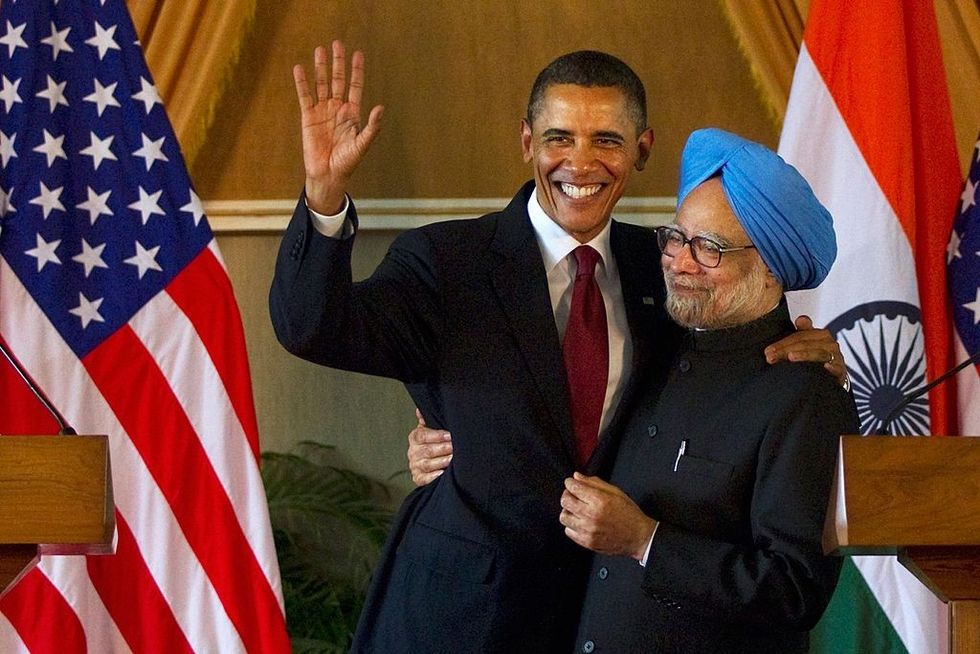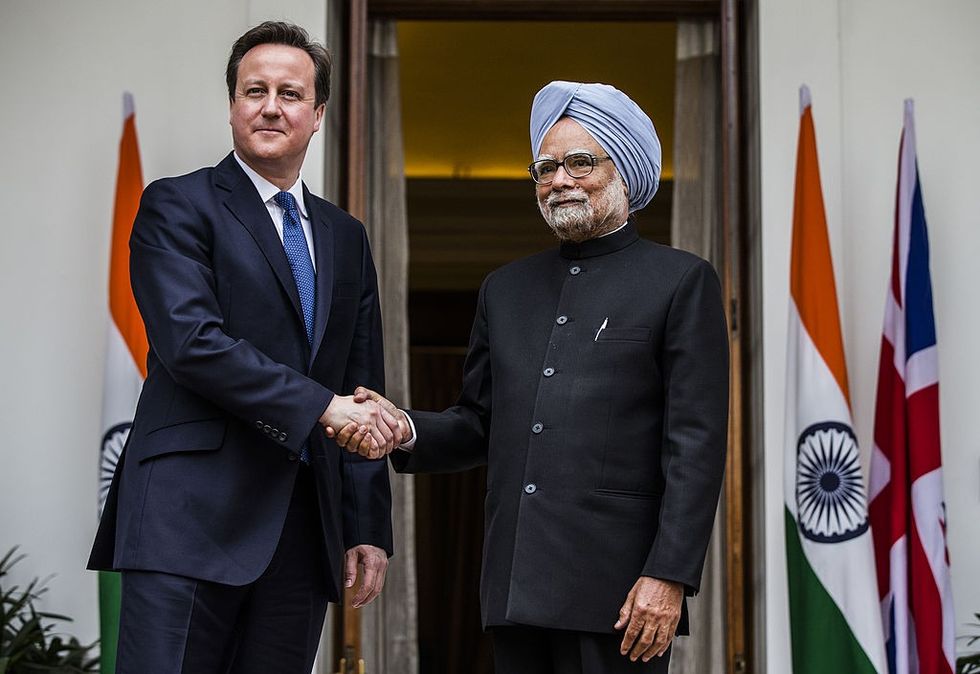PRITI PATEL on Monday (8) recalled being "racially abused in the streets" as she dismissed the opposition's "lectures" on racism and inequality.
The home secretary said in the House of Commons that a minority of protesters who were violent during the weekend's "Black Lives Matter" protests in Britain undermined the cause and should face justice.
Patel said she sympathised with peaceful protesters, but added that large gatherings were currently unlawful due to the public health risks around the spread of the new coronavirus.
"A lawless minority of protesters have regrettably turned to violence... as of this morning, the total number of arrests stood at 135," Patel told parliament, adding that they had "subverted this cause with their thuggery".
"I want to see the violent minority responsible arrested brought to justice," she added.
She told the house that 135 arrests were recorded as of Monday morning as 200 protests -- involving over 137,500 people -- took place place in the UK.
Patel referred to her personal experiences of racism as the Labour pilloried her on the issue of prejudice, with Florence Eshalomi asking whether the home secretary could "actually understand the anger and frustration felt by so many people".
The Labour MP had "effectively said that this government doesn't understand racial inequality", noted Patel.
"Well, on that basis, it must have been a very different home secretary who as a child was frequently called a P**i in the playground," she said.
"A very different home secretary who was racially abused in the streets or even advised to drop her surname and use her husband's in order to advance her career.
"A different home secretary recently characterised in The Guardian newspaper as a fat cow with a ring through its nose - something that was not only racist but offensive, both culturally and religiously."
Thus, Patel added, she "will not take lectures from the other side of the House" on issues of "racism, sexism, tolerance for social justice".
She also reiterated that there was "no place for racism in our country or in society".
"And, sadly, too many people are too willing, too casual, to dismiss the contributions of those who don't necessarily conform to preconceived views or ideologies about how ethnic minorities should behave or think.
"This, in my view, is racist in itself."





 Former US president Barack Obama (L) with Manmohan Singh (Photo by Daniel Berehulak/Getty Images)
Former US president Barack Obama (L) with Manmohan Singh (Photo by Daniel Berehulak/Getty Images) David Cameron shakes hands with Manmohan Singh
David Cameron shakes hands with Manmohan Singh 













Ten million stories of migration to Britain